African Teak Wood
- September 12, 2023
- 1 comment
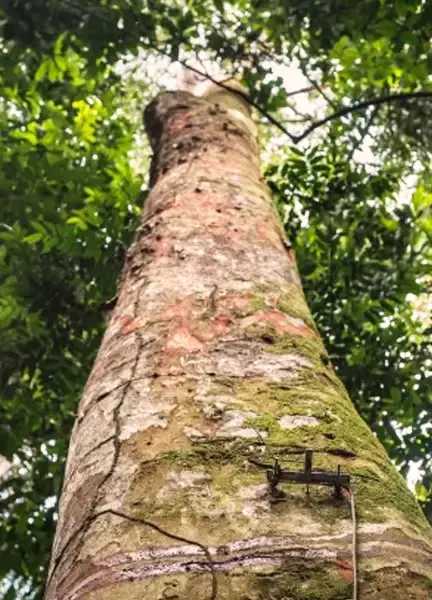
African Teak, scientifically known as Pericopsis elata, is a majestic deciduous tree indigenous to West and Central Africa, reaching heights of up to 45 meters. Its defining features include a straight trunk and a luxuriant crown of pinnately compound leaves, accompanied by fragrant blossoms.
Texture
The wood of African Teak boasts a fine to medium texture with a subtle coarse grain pattern, yielding a smooth and uniform surface when worked, making it highly attractive in various applications.
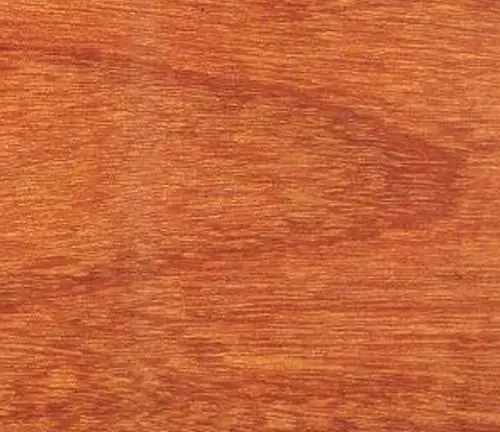
Bark
The tree’s bark initially exhibits a smooth, grayish-to-brown surface when young but matures into a rough, scaly texture as it ages.
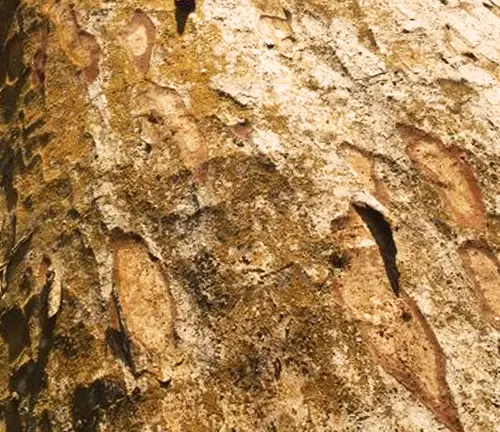
Furniture
African Teak is highly coveted in the realm of furniture craftsmanship. Its exceptional strength, durability, and aesthetic appeal make it an ideal choice for creating exquisite pieces like tables, chairs, and cabinets.
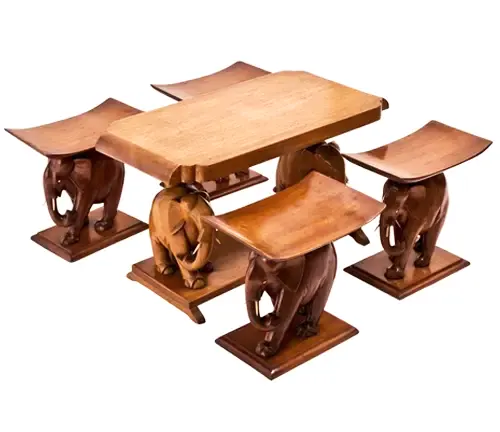
Weapon
Historically, indigenous communities have harnessed the tree’s strength and hardness for crafting traditional weapons such as spears and clubs.

Firewood
African Teak, though durable, is rarely used as firewood due to its high value in other applications like timber and furniture.
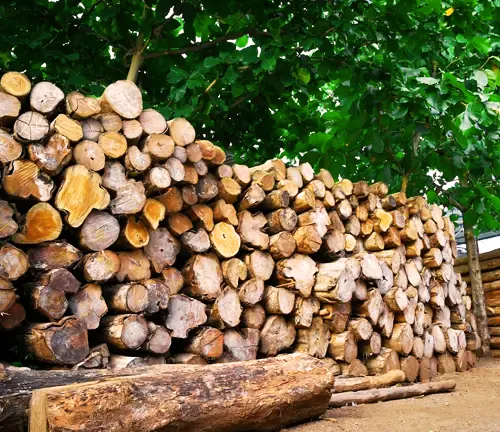
Construction
The construction industry benefits greatly from African Teak. It is utilized in the creation of beams, posts, and other structural elements, thanks to its remarkable strength and resistance to decay.
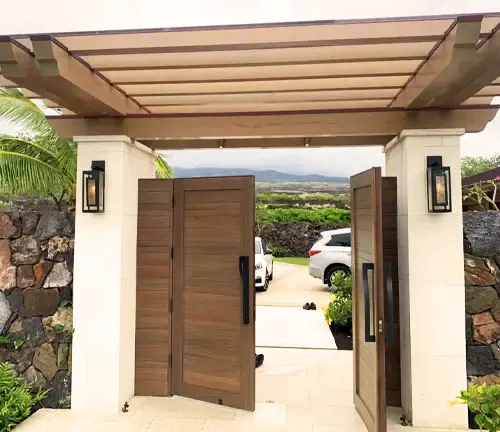
Plywood
African Teak wood is a fundamental component in the production of plywood sheets, serving a variety of construction and woodworking purposes.
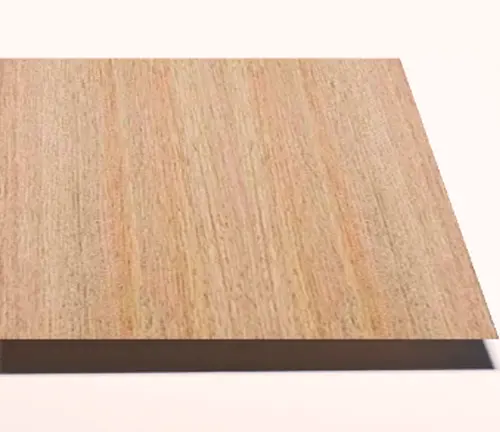
Board
Lumber sourced from African Teak is fashioned into boards and planks, ideal for paneling, flooring, and general woodworking projects.
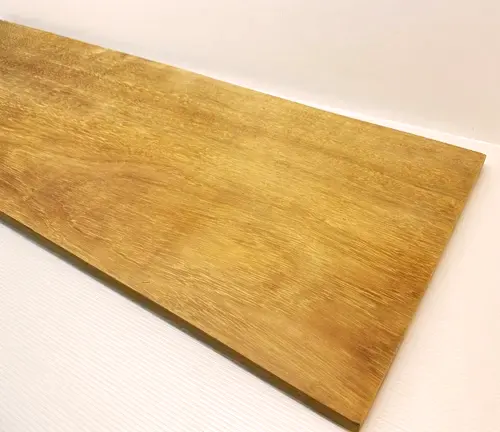
Railroad Cross Ties
In some instances, African Teak is employed for railroad ties due to its capacity to endure heavy loads and resist decay.
Pallet
African Teak lumber is a practical choice for crafting pallets used in shipping and storage, owing to its robustness and load-bearing capability.
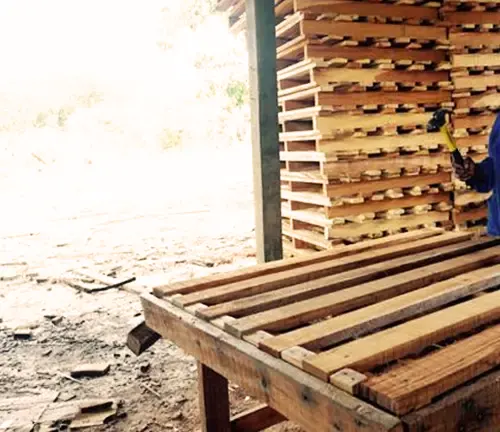
Fencing
The wood of African Teak is well-suited for outdoor fencing projects, offering both longevity and an appealing aesthetic.
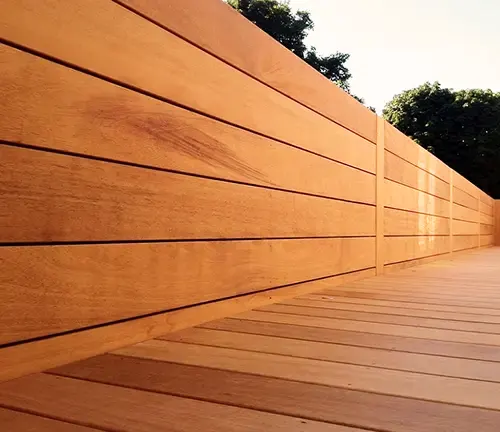
Wood Decking
African Teak stands out as a premier option for outdoor wood decking, thanks to its innate resistance to moisture, insects, and decay, ensuring the creation of long-lasting, visually pleasing decks.
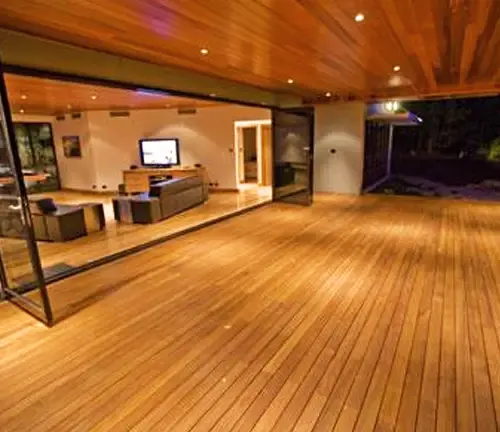
Live Edge Siding
The use of African Teak in live edge siding adds a touch of rustic charm to construction projects, as it highlights the wood’s natural, irregular edges.
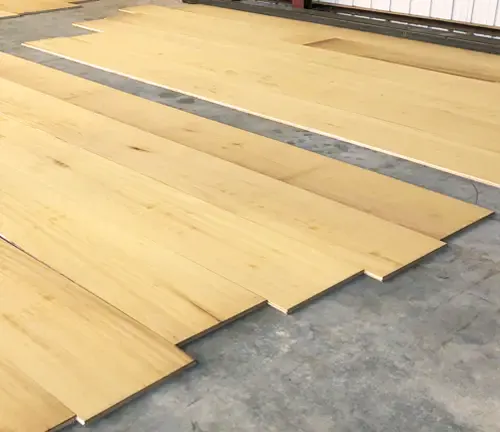
Beams
African Teak plays a pivotal role in constructing robust beams used in buildings, thanks to its durability and resistance to rot and decay.
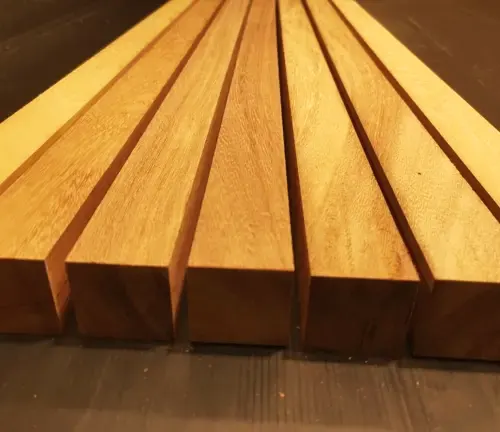
You can check our Lumber Section for an even more comprehensive look into the world of wood and its countless applications. There’s a wealth of knowledge waiting for you there, so dive right in and embark on your next enlightening read. Happy Reading!
FAQs
- What makes African Teak unique among hardwoods?
African Teak is distinctive for its remarkable combination of strength, durability, and stunning appearance. Its fine to medium texture and coarse grain pattern give it a unique and attractive aesthetic. - Why is African Teak considered a valuable timber species?
African Teak is highly valued for its resistance to decay, insects, and moisture, making it a preferred choice for outdoor and marine applications. Its longevity and natural beauty contribute to its high market demand. - Is African Teak an endangered species?
African Teak, scientifically known as Pericopsis elata, is classified as a vulnerable species due to overharvesting and habitat loss. Sustainable harvesting practices are crucial to its conservation. - What are the historical uses of African Teak?
African Teak has a rich history of use in traditional weaponry, including spears and clubs, by indigenous communities in Africa due to its strength and hardness. - How does African Teak contribute to sustainable forestry practices?
Sustainable forestry management of African Teak involves carefully selecting trees for harvest, replanting, and protecting the species’ natural habitat. This ensures a long-term supply of this valuable hardwood. - Can African Teak be used for indoor applications as well?
Yes, African Teak is commonly used for indoor applications like furniture, flooring, and paneling due to its aesthetic appeal and durability. - What are some alternatives to African Teak for those concerned about sustainability?
Sustainable alternatives to African Teak include other tropical hardwoods like Mahogany, Ipe, and sustainable plantation-grown woods like Teak from well-managed plantations. - How does African Teak compare to other hardwoods in terms of price?
African Teak is often considered one of the more expensive hardwoods due to its high demand and limited availability. Its price can vary based on factors such as quality, size, and market conditions. - What maintenance is required for African Teak wood products, like outdoor decking?
African Teak decking requires regular cleaning and sealing to maintain its appearance and protect it from the elements. Proper maintenance can extend its lifespan significantly. - Can African Teak be legally imported and used in various countries?
Import and use regulations for African Teak vary by country and are subject to international trade agreements. It’s essential to check local laws and certifications to ensure the legality of African Teak products. - How does the color of African Teak wood change over time?
African Teak wood tends to darken and develop a rich patina as it ages, which is often appreciated for its aesthetic value. - What are some of the challenges in conserving African Teak forests?
Challenges in conserving African Teak forests include illegal logging, habitat fragmentation, and the need for sustainable management practices to balance timber extraction with conservation efforts.
In conclusion, African Teak stands as a testament to nature’s finest craftsmanship. With its exceptional strength, timeless beauty, and diverse applications, this hardwood species has left an indelible mark on industries ranging from furniture to construction. However, as a vulnerable species, its conservation is of paramount importance. By embracing sustainable practices and responsible stewardship, we can ensure that African Teak continues to grace our world with its elegance and resilience for generations to come. Thank you for exploring the wonders of African Teak with us, and may its legacy endure in both our hearts and our forests.


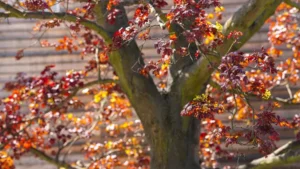
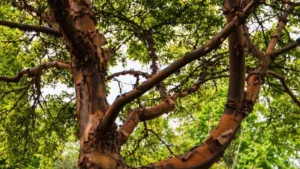
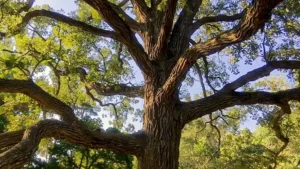
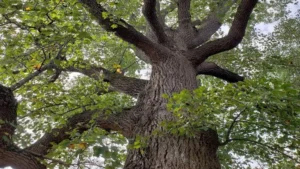
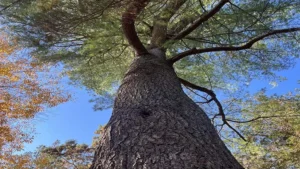
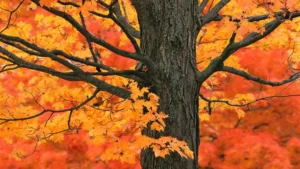
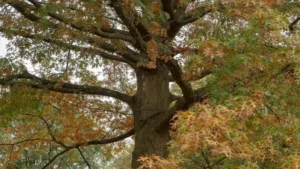
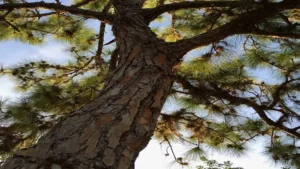
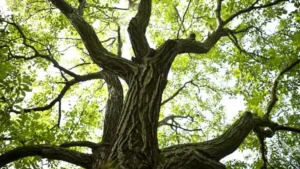
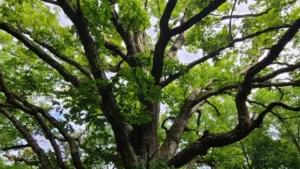
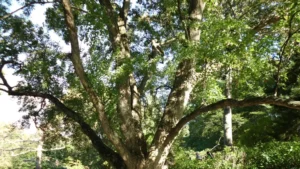
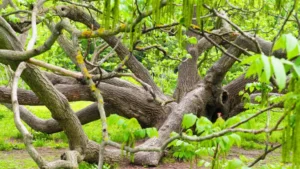
I love these
Iweajunwa i
May 24, 2024 3:33 pm